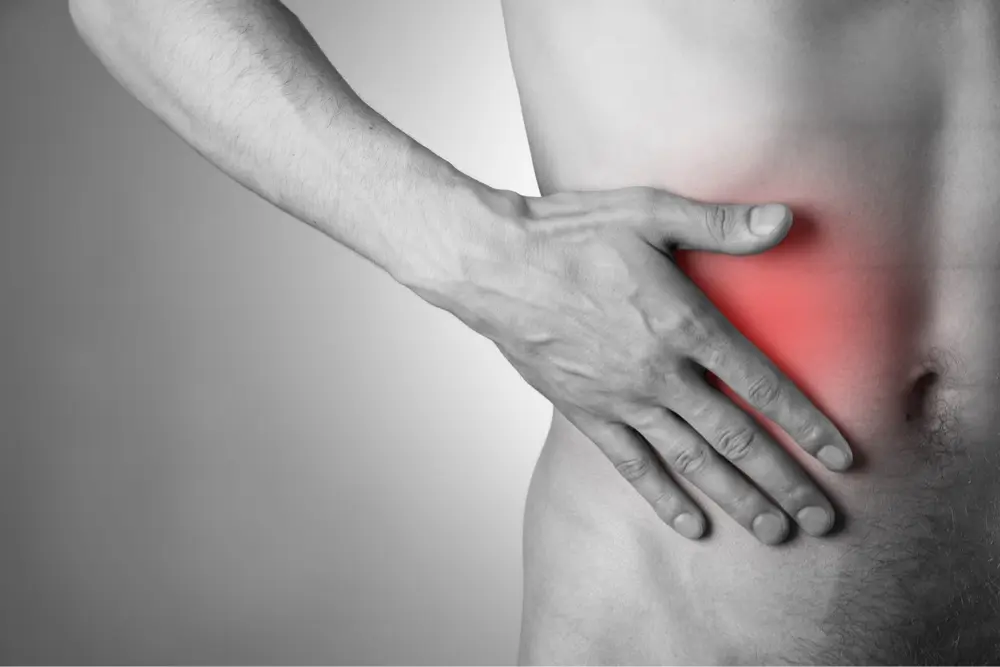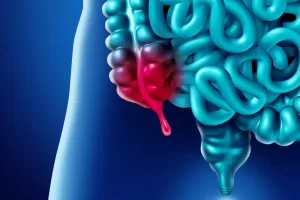Appendicitis- recognising the symptoms
Medically Reviewed by Dr Fat Poon
Last updated on 13.06.2024
When people come to see the doctor with abdominal pain, often they are worried it could be Appendicitis. So how do you know if you have Appendicitis? Here are a few tell-tale signs that doctors look out for. But first, what exactly is Appendicitis?
What is the Appendix and what does it do?
- The appendix is a small worm-like tubular structure that extends from the start of the large intestine (the caecum), which in most people is situated in the lower right side of the abdomen (tummy).
- The appendix does not appear to have any important functions in modern-day humans. However, in other mammals, the appendix still has a role in the digestion of food- so it may have had a similar purpose for our human ancestors.
What causes Appendicitis?
- Appendicitis is when the appendix gets inflamed and/or infected.
- It’s not always clear why this happens, but in some cases, there may be a build-up of bowel contents/faecal matter inside the appendix, leading to bacterial infection and inflammation.
- Appendicitis can happen at any age but is most common before the age of 30.
What are the symptoms of Appendicitis?
- Abdominal pain- often this starts as dull pain around the belly button, which moves to the lower right side and becomes sharper and more severe after hours or days.
- However, not everyone gets this typical pain- some people get pain in the legs, hips, the lower back or around their bottom.
- Reduced appetite, nausea and vomiting
- Fever
- Some people may experience a change in bowel habit (e.g. constipation or diarrhoea)
- Movement (including walking) may be painful- this sometimes causes children with appendicitis to bend forwards slightly as they walk.
What will a doctor pick up on examination?
Certain findings on examination may suggest Appendicitis.
- Fever
- The tummy may feel hard or rigid
- “guarding”- this means that when the doctor presses on your tummy the abdominal muscles involuntarily tense up. It’s a sign of inflammation.
- Rebound tenderness- this means that when the doctor presses on the tummy the pain gets suddenly worse just as they take their hand away.
- Rovsing’s sign- this means when the doctor presses on the left side of the tummy, the pain is still felt on the right (the side of the appendix)
However, symptoms and examination findings can vary a lot from one person to another.
If your doctor suspects Acute Appendicitis, they’ll usually recommend you go immediately to hospital, as it needs to be treated as an emergency.
What are the complications of Appendicitis?
- Perforation- if the appendix gets very inflamed it can burst or rupture, allowing bugs to enter the abdominal cavity, leading to serious infection known as “peritonitis”.
- Sepsis- if bacteria enter the bloodstream , it can cause serious infection throughout the body, with fevers, chills and low blood pressure, shock and even death.
- Abscess formation- some people may develop an abscess (a collection of pus) around the appendix
What tests are needed?
- In many cases a doctor will make the diagnosis based on the symptoms of Appendicitis
- Sometimes blood tests may be requested- these may show a raised white cell count, and inflammatory markers (ESR and CRP)
- An ultrasound or CT scan of the pelvis may show inflammation of the appendix.
- However, in most cases, if your GP thinks you or your child has appendicitis, they’ll send you straight to the emergency department as it can be life-threatening and you may need surgery.
What else could cause this type of pain?
In women, the following conditions may look very like appendicitis.
- Pelvic Inflammatory Disease (PID)
- An ovarian cyst
- An ectopic pregnancy (any women with acute abdominal pain who is sexually active should have a pregnancy test)
Other causes of acute abdominal pain include:
- Infection of the bowel/ gastroenteritis
- Chest infections
- Urinary tract infections
- Inflammatory conditions of the bowel- e.g. Crohn’s Disease
Your doctor will usually try to rule all of these out by asking relevant questions and performing an examination.

What is the treatment for Appendicitis?
- In most cases, an operation is urgently required- this is called an Appendicectomy or Appendectomy- it involves the appendix being removed.
- It may be done by keyhole surgery, but sometimes “open” surgery through a larger incision is needed.
- If there has been perforation, a drain may be placed, to allow the infection to pass out of the abdomen after the surgery.
- Intravenous antibiotics can also be used as treatment, particularly if someone is to weak or frail to have an operation- but in most cases surgery is required.
If you have concerns about Appendicitis or think you have symptoms of Appendicitis, you should see a doctor urgently.
Getting a Mental Health Care Plan in Australia: Your Guide
Getting a Mental Health Care Plan in Australia: Your Guide Mental health matters—and if you’re feeling overwhelmed, anxious, or down, a mental health care plan can help. But what is it, and how do [...]
UTI Symptoms and Treatment: What You Need to Know
UTI Symptoms and Treatment: What You Need to Know Urinary Tract Infections (UTIs) are common, uncomfortable, and often disruptive. But what exactly are the signs to watch for, and how can you get relief [...]
Free Mental Health Care Plan Online | Bulk-Billed by Qoctor
Free Mental Health Care Plan Online | Bulk-Billed by Qoctor Discover how to get a free, bulk-billed Mental Health Care Plan (MHCP) in Australia through Qoctor's telehealth service. Accessing [...]





